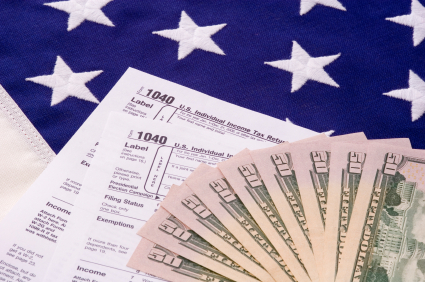When they joined with Democrats to vote for new handouts to business earlier this week, Republicans in the Illinois legislature such as House Leader Tom Cross patted themselves on the back. The special tax credits and abatements granted to Sears, the CME Group, and CBOE Holdings reduced the corporations’ liabilities to the government.
Cross and others on the right argued the tax breaks were really just a way of reducing taxes overall – a way of letting free enterprise keep more of what it produced.
A close look at the facts about these and, indeed, all other special tax treatments for businesses reveals something else: Such handouts often are unfair and heavily distorting, an example of the kind of central planning and crony capitalism that deserves special opprobrium from those who want lower taxes and less government.
Taxes are needed to finance some things – such as policing the streets, running prisons, defending the country, administering courts, and enforcing contracts – that would be difficult for private markets to produce. Where taxes are necessary, they should be both fair and adequate. In other words, taxes should treat like situations alike and different situations differently, and they should pay the obligations the government assumes on behalf of the public.
The tax breaks the Illinois legislature granted are obviously unfair: They benefit only a handful of businesses and single out three big, profitable corporations for the most help. Other companies, even those in very similar situations, that want them are simply out of luck unless they can hire armies of lobbyists to convince the legislature otherwise.
The $214 million in tax breaks the state will grant will add to the state’s budget gap currently estimated at more than $3 billion, resulting in a deeper deficit or require deeper cuts in spending. In the state’s current fiscal situation, the consequences of the tax breaks are essentially the same as if the state borrowed an additional $214 million.
In light of the way they distort the economy, selective tax breaks have several disadvantages relative to simply raising taxes and then spending the money. Since no money is technically changing hands, the state government’s ability to audit the recipients of the public largess is much diminished and, if the companies don’t follow through on their promises to retain Illinois jobs, there’s almost no way to ask for a refund. And other states can still try to lure away Illinois enterprises in the future, which means offering these tax breaks now gives other businesses an incentive to threaten relocation in the hopes of getting similar handouts.
This entanglement of government and commerce provides a big reason why those who favor lower taxes and less government ought to view such selective tax breaks with a jaundiced eye. When it gives benefits to one business over another – whether as grants or as tax incentives – the government tries to pick economic winners, something it has no proven expertise at doing, and increases its control over the economy.
The bottom line is simple: The tax breaks to CME, CBOE, and Sears are a terrible deal for residents of the State of Illinois.
Eli Lehrer ([email protected]) is vice president of Washington, DC operations for The Heartland Institute. Steve Stanek ([email protected]) is editor of The Heartland Institute’s Budget & Tax News.




